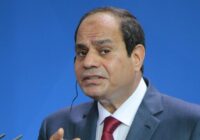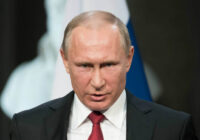The observation report of Egypt’s election is highly problematic and indicates that the EU has sided with the repressive regime.
Between May 26-28, Egyptians voted for a new president as yet another election was held. Abdel Fattah al-Sisi won with more than 90% of votes against his only opponent, the left-wing populist Hamdeen Sabahi. Sisi was widely-expected to win as the former army chief was supported by the state apparatus and large parts of the Egyptian elite. What surprised many, however, was the low voter turnout, which prompted the election commission to extend the voting process from two to three days.
Several nongovernmental organizations, the African Union, the Arab League and the European Union (EU) observed the presidential election. The EU mission encountered obstacles from the outset and was almost canceled. In the end, it could only be implemented in a reduced manner. As a result, EU representatives could not get a comprehensive picture of the situation in Egypt.
Therefore, the positive tone of the EU mission’s first statement after the vote came as a surprise. It essentially confirmed that the Egyptian authorities administered the election “in line with the law.” Despite describing the election’s political context as repressive, EU representatives highlighted that there was “broad support” from the Egyptian population who were in favor of the transitional government’s roadmap. However, no evidence was delivered for this. The decision to extend the election by one day was seen as in accordance with the law, despite being controversially discussed among Egyptian jurists.
Even more problematic was the lack of assessment over voter turnout. Instead, EU observers cited the 47.3% given by the Egyptian election commission. Given that many polling stations remained virtually empty, this number should have been addressed as highly suspicious. Moreover, the statement did not mention that the population was ordered to vote under the threat of punishment. Egyptian law entails an obligation to vote; however, this has never been enforced. Threatening enforcement of this law emphasized the desperate efforts by Egyptian authorities to achieve a high voter turnout in order to equip the new president with as much legitimacy as possible. Accordingly, this move should have been addressed by the EU.
Legitimizing the Political Process in Egypt
The real problem with the EU observer mission is not its questionable assessment. Rather the EU, through its political decision to conduct an observer mission, has lent a considerable amount of external legitimacy to the election process, which was not free and fair. The invitation by Egyptian authorities to the EU may have been motivated by fears of a low voter turnout that would have indicated a lack of support for Sisi. This made any act of external legitimization by the EU even more crucial for the Egyptian regime, due to the lack of internal support.
Apparently, the EU is more concerned with short-term stabilization in Egypt rather than long-term stability. It does not seem to believe in a successful democratic transformation of the country.
The legitimacy boost for the regime was even bigger as the mission had an explicit political element. Not only were election specialists part of the mission, but so too was a delegation of European Parliament representatives. Thus, it is not surprising that Egyptian state media interpreted the EU mission as a sign of support for the political process.
Apparently, the EU is more concerned with short-term stabilization in Egypt rather than long-term stability. It does not seem to believe in a successful democratic transformation of the country. Instead, the EU has sent a signal to the ruling Egyptian elites that the political process steered by them has been accepted.
However, in doing so, the EU not only alienates opponents of the regime such as activists that brought down Hosni Mubarak in 2011 — the same activists who were celebrated as protagonists of civil society demands for self-determination. Rather, the EU has also damaged its long-term opportunities to influence the situation.
If it becomes clear that Sisi cannot rule successfully due to a lack of societal support, one of two scenarios will emerge. First, state repression will intensify, something the EU will not be able to ignore in the long-run. Human rights organizations such as Amnesty International have already spoken out against unacceptable conditions, diminishing press freedom and excessive police brutality, including killings and mass incarcerations that go unpunished. The second situation could see a spread of discontent among the Egyptian population, leading to mass protests once again. If another leader is overthrown, the EU will face considerable difficulties in justifying its support for the current political process.
The concluding statement by a member of the EU mission, mentioning that the election was “democratic, peaceful and free … but not necessarily always fair,” is a mockery considering the current political climate in Egypt. In the eyes of its Egyptian critics, the mission completely discredited itself. Even if the final report, which is set to be released in a few weeks, details the election’s shortcomings, the first impression will stick: the EU has sided with repression in Egypt. Having failed to boycott the quintessentially undemocratic process in Egypt, the EU has virtually supported it.
*[This article was originally published by Stiftung Wissenschaft und Politik (SWP) and was translated from German to English by Manuel Langendorf.]
The views expressed in this article are the author’s own and do not necessarily reflect Fair Observer’s editorial policy.
Support Fair Observer
We rely on your support for our independence, diversity and quality.
For more than 10 years, Fair Observer has been free, fair and independent. No billionaire owns us, no advertisers control us. We are a reader-supported nonprofit. Unlike many other publications, we keep our content free for readers regardless of where they live or whether they can afford to pay. We have no paywalls and no ads.
In the post-truth era of fake news, echo chambers and filter bubbles, we publish a plurality of perspectives from around the world. Anyone can publish with us, but everyone goes through a rigorous editorial process. So, you get fact-checked, well-reasoned content instead of noise.
We publish 2,500+ voices from 90+ countries. We also conduct education and training programs
on subjects ranging from digital media and journalism to writing and critical thinking. This
doesn’t come cheap. Servers, editors, trainers and web developers cost
money.
Please consider supporting us on a regular basis as a recurring donor or a
sustaining member.
Will you support FO’s journalism?
We rely on your support for our independence, diversity and quality.







Comment